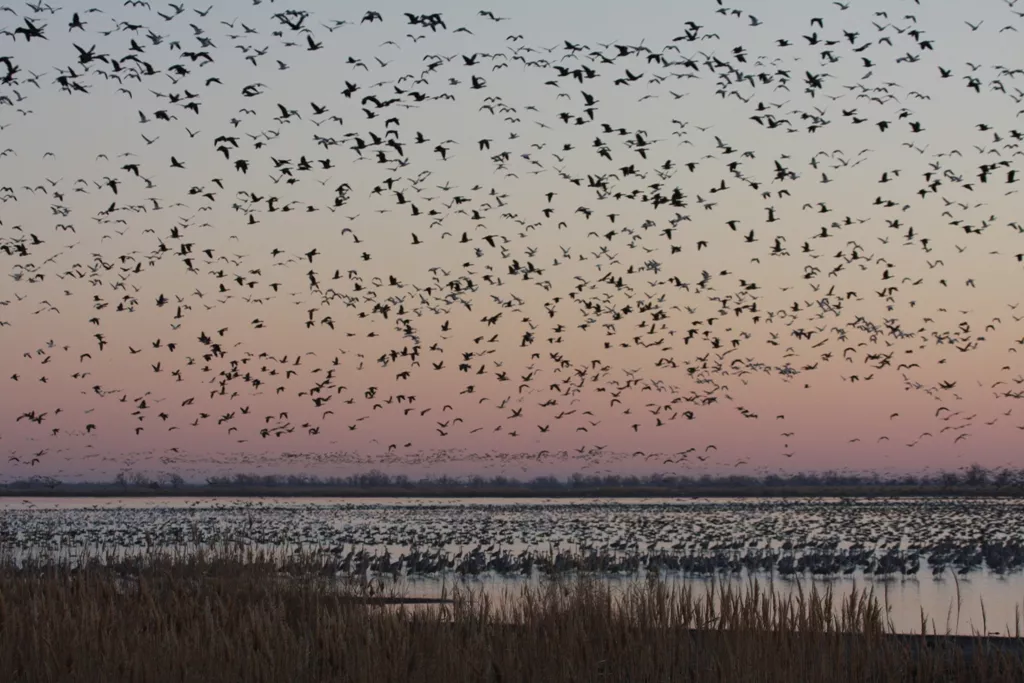
By Elaine Giessel and Mimi Moffat, Sierra Club Kansas Chapter
The unique wetlands at the Quivira National Wildlife Refuge (QNWR) are world renowned, but Kansas officials seem determined to let them dry up. For decades, agricultural irrigators have resisted efforts by the U.S. Fish and Wildlife Service to enforce the distribution of water from the Rattlesnake Creek basin, on which the refuge depends to maintain critical stopover habitat in the Central Flyway.
Groundwater pumping has dropped the local water table so drastically that Rattlesnake Creek has lost base flow and runs only after significant rainfall events. Water rights in Kansas, as in many western states, are property rights which were granted to the first claimants, under the "first in time, first in right" doctrine. Even though the refuge owns senior water rights in the watershed, there has been no political appetite to follow the mandate of state water law.
In February, 2023, The U.S. Fish and Wildlife Service asked the Chief Engineer of the Kansas Agriculture Department to require junior rights holders to reduce their water usage so that QNWR can obtain the water to which it's entitled. The Chief Engineer has admitted that the refuge’s access to water is impaired by junior rights holders pumping groundwater for irrigation. At stake is the protection of habitat used by hundreds of species of wildlife, including the endangered whooping crane, and preservation of public lands set aside in trust for the benefit of all of us.
Pending is a July 2023 lawsuit brought by Audubon of Kansas against the Chief Engineer demanding enforcement of the QNWR water rights. Kansas law is clear. Junior rights must yield to senior rights, regardless of potential economic impact.
However, the threat of a decreased water supply to agricultural irrigators has caused outcries from individual farmers, the Farm Bureau, Groundwater Management District 5, and local and national elected officials. Last month Kansas Governor Laura Kelly intervened, asking USFWS to withdraw its latest request, the third in a decade, to administer its water rights. Kelly letter to USFWS
The Sierra Club Kansas Chapter responded swiftly with a letter to the Governor, requesting that the administrative process be allowed to proceed without political interference, as required by Kansas law. Sierra Club Response to Kelly
Watch for the Kansas Legislature to get involved in the next session. At a recent meeting of the interim Water Committee, one House member described the issues as “Ducks vs. Dollars.” Really? That dismissive catchphrase ignores the complexities of the growing conflicts over water usage which are exacerbated by the climate crisis and our heavily subsidized agriculture systems. But more importantly, the underlying message is that our government is justified in its refusal to enforce property rights which benefit the environment because outcomes would be unpopular with powerful special interests.